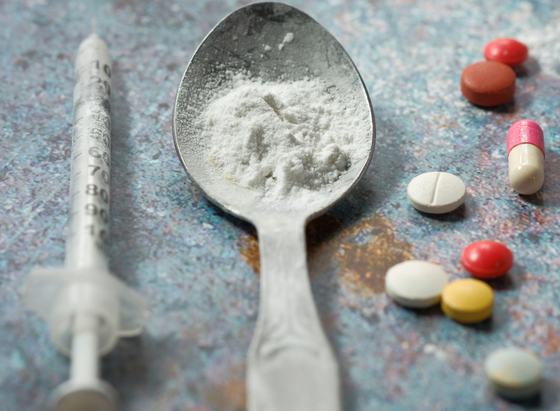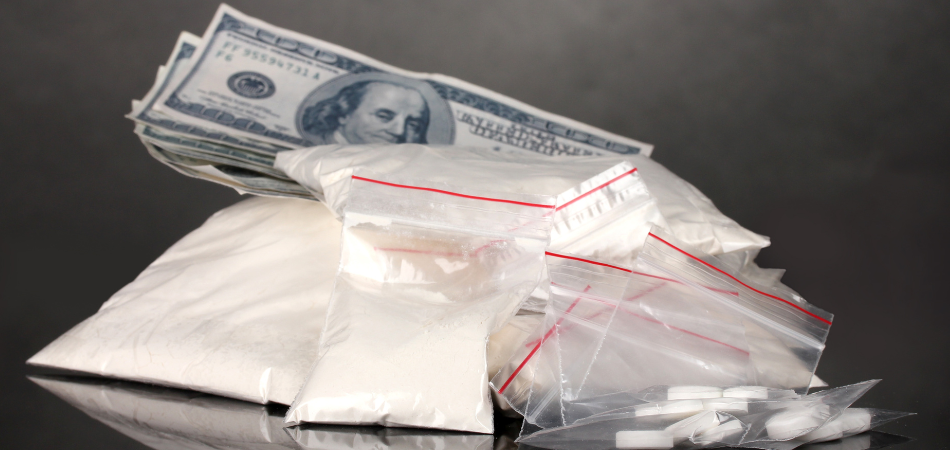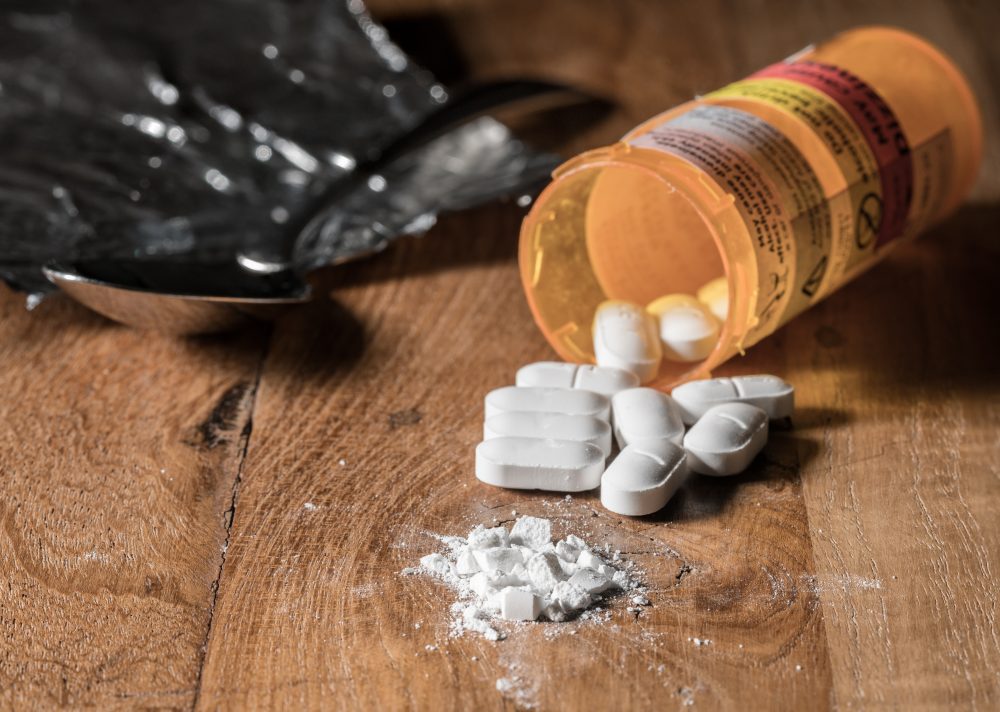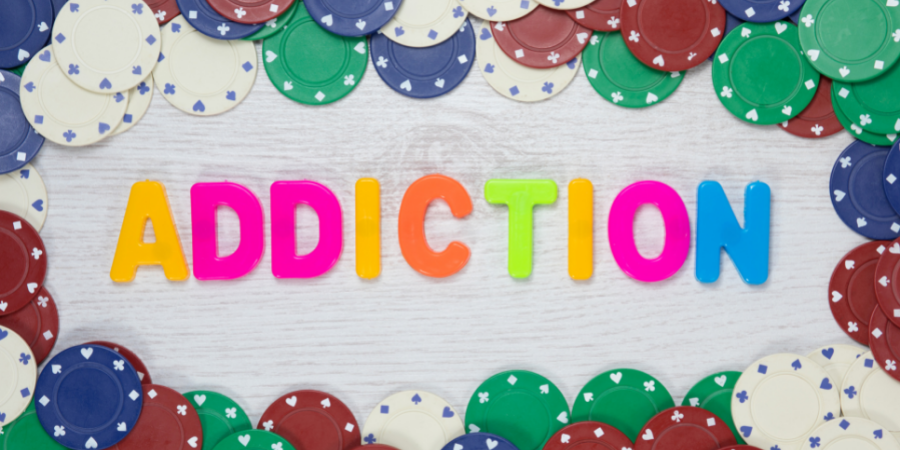Drug addiction
- Select
- Drug addiction
- Drug detox
- Drug rehab

Written by:

Medically Reviewed by:
Last Updated:
April 10th, 2025
Drug addiction is a mental illness that compels people to constantly crave a ‘fix’ of a substance, whether it be illegal or medically prescribed. Such compulsions seep into a person’s mind to the point where they are obsessed with accessing or consuming the desired drug. Not only does this come with a cost to their mental and physical health, but it sadly has the capacity to isolate people from society. Fortunately, drug addiction is both preventable and reversible; a comprehensive drug rehab course, combined with a medical drug detox, can help people regain their quality of life. So, if you’re worried you or someone you know has a drug addiction, read on to discover the key signs, the common causes, and the next steps to take.

Drug abuse vs drug addiction
Drug abuse and drug addiction are often referred to as interchangeable, but there is a difference between the two. Drug abuse is used to describe a circumstance where a person uses a drug in a manner it was not intended for, such as:
- Ignoring health care advice and taking an excessive quantity of over-the-counter medicines.
- Consuming more frequent amounts of prescription drugs than medically instructed.
Drug addiction differs from drug abuse because it involves a person being physically, mentally, or emotionally reliant on a substance to get through one day to the next. When someone is addicted to a substance, the substance becomes their number one priority, sadly causing a person to overlook all people and things they love and care for in the process.
Drug addiction causes chemical changes in the brain that drive a person to continue using substances, despite their longing to stop and enduring numerous physical, emotional, and social ramifications. Therefore, drug addiction is characterised by the National Institute on Drug Abuse as a chronic disorder that is extremely difficult to control without seeking help.
Not everyone who abuses drugs will develop a drug addiction, but almost all drug addictions stem from drug abuse.
The keys signs of drug addiction

It can be challenging to spot a drug addiction in yourself and others for a variety of reasons, such as:
- Most people who have a drug addiction are in denial and often dismiss concerns or warnings because they are in denial.
- It isn’t always easy to spot drug addiction in people since some may engage in substance abuse and not develop an addiction.
- Some people are “high functioning drug addicts”, whereby they can still maintain their jobs, relationships, and responsibilities despite craving and requiring drugs to get them through.
Look closely at the table below to compare the subtle differences between drug abuse and drug addiction. It’s important to note that some signs overlap and drug abuse isn’t something we should ignore. It can still have a damaging impact on a person’s life and, if drug abuse isn’t addressed, it will likely give way to drug addiction.
Drug Abuse signs:
- Exhibiting strong mood swings such as irritability.
- Taking drugs or medication in a way that isn’t medically advised
- They may have drug paraphernalia around their living space such as: bongs, zip-lock bags, substances, empty bottles, or packets.
- Notable changes in appearance or mannerisms including bloodshot eyes, tremors, and shakes.
Drug Addiction signs:
- They deny or lie about their drug use
- They may steal or borrow money to buy drugs.
- They show a lack of interest in previous passions or hobbies.
- They become intensely irritable when they cannot access their fix.
- They feel powerless to quit despite trying.
- They have built a tolerance to the drug and thus need to take more amounts to feel the high.
- Separating themselves from friends and family and only choosing to spend time with those who engage in substance abuse.
- They are constantly thinking about the drug and how and when they will next access it.
- They experience withdrawal symptoms when they stop using the drug
What are the most common types of drug addiction?
Some drugs are more physically addictive than others, but all drugs have the capability to cause psychological dependence. People can quickly become addicted to stimulants, depressants, opiates and hallucinogens, whether they come in a prescription form or recreational. Some of the drug addictions you can develop include:
Amphetamine addiction
Amphetamine addiction can cause a range of problems, including mental health problems, relationship issues, financial difficulties, and health problems.
Cannabis addiction
Cannabis’ popularity has soared in recent decades and is regularly featured in pop culture. Click the button below if you are interested in learning more.
Cocaine addiction
Cocaine is one of the most abused substances in the UK, and those caught in the midst of addiction find it challenging to stop despite negative consequences.
Crack cocaine addiction
Crack cocaine is a highly addictive substance, and those caught in the midst of it feel powerless to stop.
Crystal meth addiction
Made famous to many in the hit show Breaking Bad, crystal meth is one of the most addictive substances in the world.
Ecstasy addiction
Ecstasy addiction is a serious problem and one that is continually present in the UK. Learn more below.
GBL addiction
Gamma-Butyrolactone (GBL) is a chemical compound with varied applications, from industrial solvents to nail polish removers.
GHB addiction
Gamma-hydroxybutyrate (GHB) is a central nervous system depressant that produces sedative and euphoric effects.
Hallucinogen addiction
Hallucinogens are a diverse class of drugs that alter a person’s perception of reality, thoughts and feelings.
Heroin addiction
Sanctuary Lodge is a state-of-the-art addiction rehab facility providing detoxification from various substances such as heroin, as well as a personalised rehabilitation programme.
Ketamine addiction
Ketamine is a drug that was once found in hospitals or veterinarian clinics but now can be accessed in many party scenes around the world. Learn more through the button below.
LSD addiction
Lysergic Acid Diethylamide, better known by its acronym LSD, is a powerful psychedelic drug that significantly alters perception, mood and various cognitive processes. Learn more through the button below.
Monkey dust addiction
Monkey Dust, also known by its street names “Zombie Dust,” is a powerful synthetic cathinone with intense psychoactive effects.
Steroid addiction
Steroids are a class of organic compounds with a molecular structure that contains four rings arranged in a particular configuration.
Why do people develop drug addiction?
Many causes contribute to drug addiction, and most of the time, it is a combination of more than one factor. Developing a drug addiction, much like any other mental illness, is not something you are responsible for. Beating yourself up is more likely to delay your recovery than to help you; fault or blame has no place in treating drug addiction. However, to better understand the nature of drug addiction and how it emerges, let’s explore some common risk factors:
Genetics can play a role in drug addiction
Research has revealed that genetics play a role in the development of substance abuse disorder. In fact, studies have shown that genetics account for up to 50% of a person’s risk of drug addiction. This doesn’t necessarily mean addiction runs in families but scientists are identifying and exploring hereditary links.
Environmental factors can lure people to drug abuse
Living in a place with low socioeconomic status, poor unemployment, or high crime rates tends to increase a person’s risk of drug abuse. Moreover, if someone is living in a place where they get quick and easy access to drugs, such as sharing a home or community where others engage in illegal substances, it can be easy for them to partake in similar behaviours too.
Childhood trauma can result in drug dependence
Experiencing any form of physical, psychological, or emotional trauma at a young age, such as abuse, abandonment, or witnessing domestic violence, can have an adverse effect on brain development. This can influence behaviours connected to drug addiction, such as impulsive decision-making, unhealthy emotional expression, and poor social skills.
Recent trauma can be the catalyst for drug addiction
It’s possible that an unforeseen and negative life event may have been the catalyst for addiction in adulthood. For example, somebody may have lost a close family member, friend, relationship, home or job, and their grief may be so overbearing that they seek relief in illicit substances, unaware they are developing a drug addiction.
Co-occurring disorders are linked to drug addiction
If somebody has a pre-existing mental health disorder such as schizophrenia, major depression, bipolar, OCD, ADHD, and personality disorders, they are more likely to develop a reliance to drugs.
Who can get addicted to drugs?

Anyone can develop an addiction. Sanctuary Lodge believes that addiction doesn’t discriminate; as with other mental illnesses, drug addiction can appear in the most unpredictable places. It doesn’t matter your gender, your social and cultural background, or how old you are. Drug addiction is a condition that mentally and emotionally consumes a person to the point where they may feel like a shell of who they were prior to becoming reliant on drugs. Therefore, we all need to be mindful not to label those suffering from drug addictions.
How can I support a loved one through drug addiction?
If someone you care about is going through a drug problem, you may be feeling an array of emotions ranging from anger, sorrow, and fear. Please understand that this is normal. We appreciate how difficult it must be to watch someone battle dependency on drugs. We recommend talking to them in a safe place, at a moment when they are at their most calm, and when you have plenty of time to allow them to open up. We appreciate their drug addiction may have caused you upset, but we strongly advise you not to criticise or blame them, rather listen to them, and offer support. This way, they may open up to you and together, you can find a suitable drug addiction treatment.
How do people recover from drug addiction?
The most important first step is allowing yourself to accept you have a problem. Then, you need to seek support from a drug rehab like Sanctuary Lodge.
We have seen many people walk through our doors in the depths of drug abuse, consumed with feelings of hopelessness and weighed down about their future. However, we have seen the same people leave our doors, standing a little taller, walking a little lighter and with a spark of hope in their eyes for their future. Moreover, such people have gone on to have drug-free lives for years to come.
As with each distinctive cause of addiction, the individual’s road to recovery is unique. But we are confident we can help and give you the bespoke treatment you need to regain control of your life.
Frequently asked questions






















